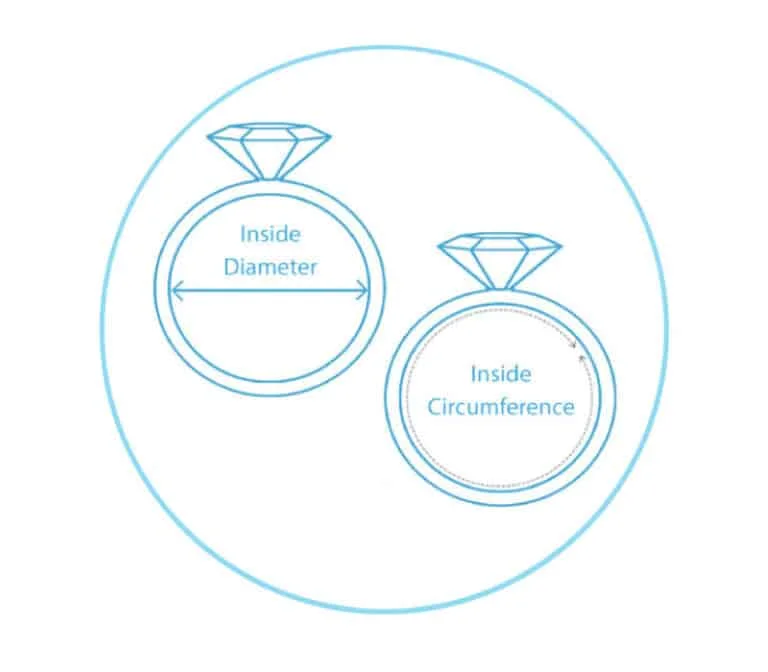💍 Ring Size Conversion Guide
If you already know your ring size but use a different sizing system than Belgium’s (ISO 8653:2016, which defines ring size by internal circumference), you can use the table below to convert your size.
For accuracy, we also recommend cross-checking by measuring the internal diameter or internal circumference of a well-fitting ring.
-
Internal Diameter (mm): Measure the distance across the inside of the ring.
-
Internal Circumference (mm): Measure around the inside edge of the ring.
-
Match your measurement with the table to find your size in different international standards.
Ring Size Conversion Table
|
RING DIAMETER(MM) |
INNER CIRCUMFERENCE (MM) |
BELGIUM/ FRANCE/ SCANDINAVIA/ AUSTRIA/ OTHER EUROPEAN |
ITALY/ SPAIN/ NETHERLANDS/ SWITZERLAND |
GERMANY/ BALTIC COUNTRIES |
USA / CANADA |
UNITED KINGDOM |
ASIA |
|---|---|---|---|---|---|---|---|
|
14 |
46 |
46 |
6 |
14.6 |
– |
3 3/4 |
- |
|
– |
46.8 |
46.8 |
6.8 |
14.9 |
4 |
- |
7 |
|
14.9 |
47 |
47 |
7 |
15 |
- |
- |
- |
|
15.3 |
48 |
48 |
8 |
15.3 |
4.5 |
- |
8 |
|
15.6 |
49 |
9 |
15.6 |
- |
- |
- |
|
|
- |
49.3 |
49.3 |
- |
- |
5 |
9 |
|
|
15.9 |
50 |
50 |
10 |
15.9 |
- |
- |
|
|
- |
50.6 |

HOW TO FIND YOUR RING SIZE
It is best if you can measure your ring size at a jeweler’s but if this is not possible, please follow the instructions below to measure your finger.
- Use a strip of paper app the width of an average ring band (approximately 4- 6 mm).
- Wrap it around your finger at the spot you put the the ring.
- Mark the point on the paper where it overlaps.
- With a ruler measure the length. This number is the internal circumference of the ring.
We recommend cross referencing this measurement with the measurement of an existing ring or a measurement you have received from a jeweler.